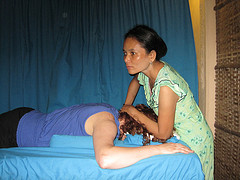Excuse me, while I nerd out to an exciting new blog– Sociology in My Neighborhood: DC Ward Six. Penned (typed?) by a Professor of Sociology at George Mason University, the site explores the same issues DCentric does, albeit on a hyperlocal level. Here’s part of a post about whether segregation is caused by racism:
Generally, sociologists study whether people are segregated because of personal choice, economic reasons, or racial discrimination. Economic factors are definitely a big reason, especially when we look at housing costs, but racial discrimination still exists. Let’s take a look at sociologists Michael O. Emerson, Karen J. Chai, and George Yancey’s “Does Race Matter in Residential Segregation? Exploring the Preferences of White Americans.”…
Controlling for all sorts of variables, Emerson and his colleagues found that whites are neutral about the likelihood of buying the house if the neighborhood is 10-15% black. Above 15% black, whites say that they would not likely buy the house. They write, “Our findings suggest a low probability of whites moving to neighborhoods with anything but a token black population, even after controlling for the reasons they typically give for avoiding residing with African Americans.” The reasons that whites typically give are crime and declining property values. So, even when the neighborhood offered has little crime and good property values, whites still choose not to live in those with 15% or more black residents.












